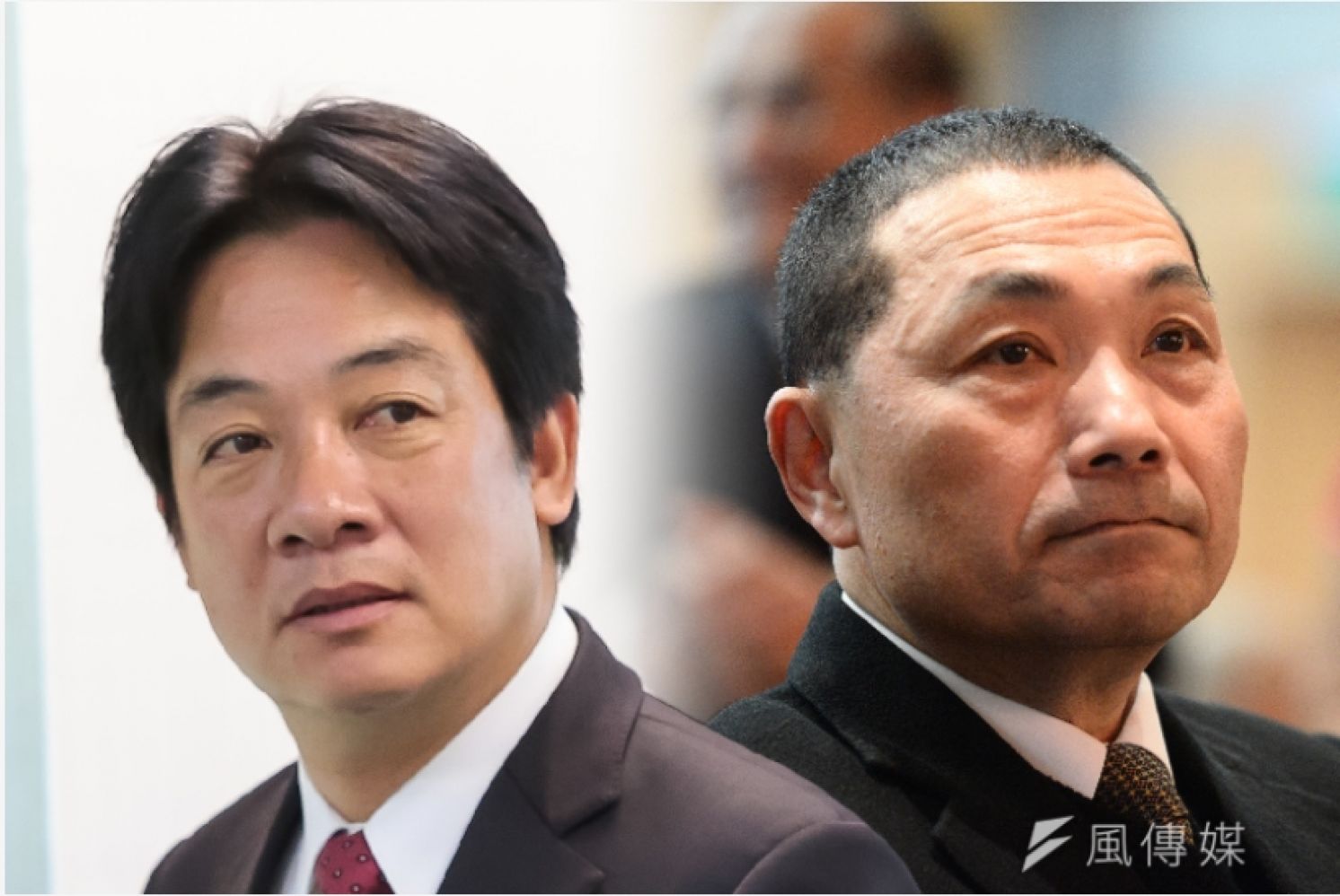
Presidential Contenders Offer Competing Theories on Cross-Strait Relations
By Lin Ting-yao
The Storm Media, April 29, 2023
Potential presidential election candidates in Taiwan recently offered theories on how to conduct relations between Taiwan and China. Mayor Hou Yu-ih of New Taipei described the Republic of China as a cup while Taiwan is the water, coexisting with each other; if there is no national security, the cup will break and the water spilled. Is the “Taiwan Strait Theory” proposed by DPP Chairman William Lai better than Hou’s “cup and water theory”?
Koo Kwang-Ming, a pro-independence politician who passed away recently, believed that Taiwan could not develop as a normal country unless it had a peaceful relationship with China. He had proposed the concept of a “federation of brothers” in which both countries would recognize each other’s independence and enjoy mutually beneficial ties.
Vice President Lai cited Mr. Koo’s proposal of a “federation of brothers,” saying Taiwan and China can coexist as allies. Mr. Lai said the Pacific Ocean is large enough to accommodate a competition between the United States and China, and the Taiwan Strait is wide enough to allow Taiwan and China to both survive and develop. Mr. Lai was quoting Chinese President Xi Jinping’s saying about the Pacific Ocean. Mr. Xi intended to resolve the differences between the United States and China, and to establish a new type of relationship between great powers after the 18th National Party Congress. Lai talked about the “Taiwan Straits theory” purposefully at Koo’s memorial service, citing Koo’s theory of “a federation of brothers” to win over the fundamental pro-independence faction. However, this kind of statement will sound a bit off to the pro-independence faction. Even though they respect the reality of the election campaign and cannot bear to be harsh, they do not necessarily agree with his national identification and the discussion of “Chinese and Taiwanese brothers.”
Mr. Koo’s “federation of brothers” regarded the two sides of the Strait as independent countries, but on the political spectrum, it sits between former presidents Lee Teng-hui’s “Special Two-country Theory,” and Chen Shui-bian’s “one country on each side.” Lee’s theory is similar to the “Two-Germanys model,” or “U.S.-Britain relations.” Chen’s “one country on each side” was also based on an imagination of Chinese countries, similar to the” Singaporean model." Regardless of Lee, Chen, and Koo’s viewpoints, in the eyes of Beijing, they are all regarded as the incompatible enemy--Taiwan independence. Lai intends to serve as a bridge between the deep green independence faction and the Beijing hawks this time, but the Beijing authorities don’t appreciate it. Beijing’s Taiwan Affairs Office (TAO) of the State Council responded by saying, “The nature of Taiwan independence will not change, it is just relying on word tricks, trying to put on ‘goodwill’ and ‘the peace cloak’ to cover up its nature.” It can be certain that Beijing has affirmed that Lai is a pro-independence politician, though he has not yet been included in the list of “diehard Taiwan independence activist entities.” Mr. Lai wants to reconcile the hawkish unification faction and the deep green independence faction, but it is in fact an impossible mission.
The last time Mr. Lai talked about cross-strait relations was in July 2022 at a book release ceremony after he came back from Japan for prime minister Shinzo Abe’s funeral. His remarks showed respect for Tsai and criticism for Xi, expressing how Taiwan’s goodwill has been continuously ignored by China in the past six years as President Tsai Ing-wen offered olive branches twice but received no response at all. Mr. Lai said if China can understand Taiwan’s goodwill and its people, and respond properly, cross-strait relations will not be that bad. In this regard, the TAO responded to the DPP authorities without naming names, saying that what they offered was not an olive branch for the peaceful development of cross-strait relations, but thistles and thorns that caused tension and turmoil in cross-strait relations. Mr. Lai’s Taiwan Strait Theory, on the one hand, intends to win over the fundamentalists of Taiwan independence and highlights Taiwan’s subjectivity, but the pro-independence faction believes that has crossed the line. On the other hand, in Beijing’s eyes, Lai’s theory is tantamount to a teasing of President Xi. The dual tactics in the end are of no avail. Mr. Lai also criticized the KMT’s national identity as schizophrenic. Later, he apologized half-heartedly to the mentally ill people only, but disregarded the KMT. It makes people wonder how such a leader can unite Taiwan.